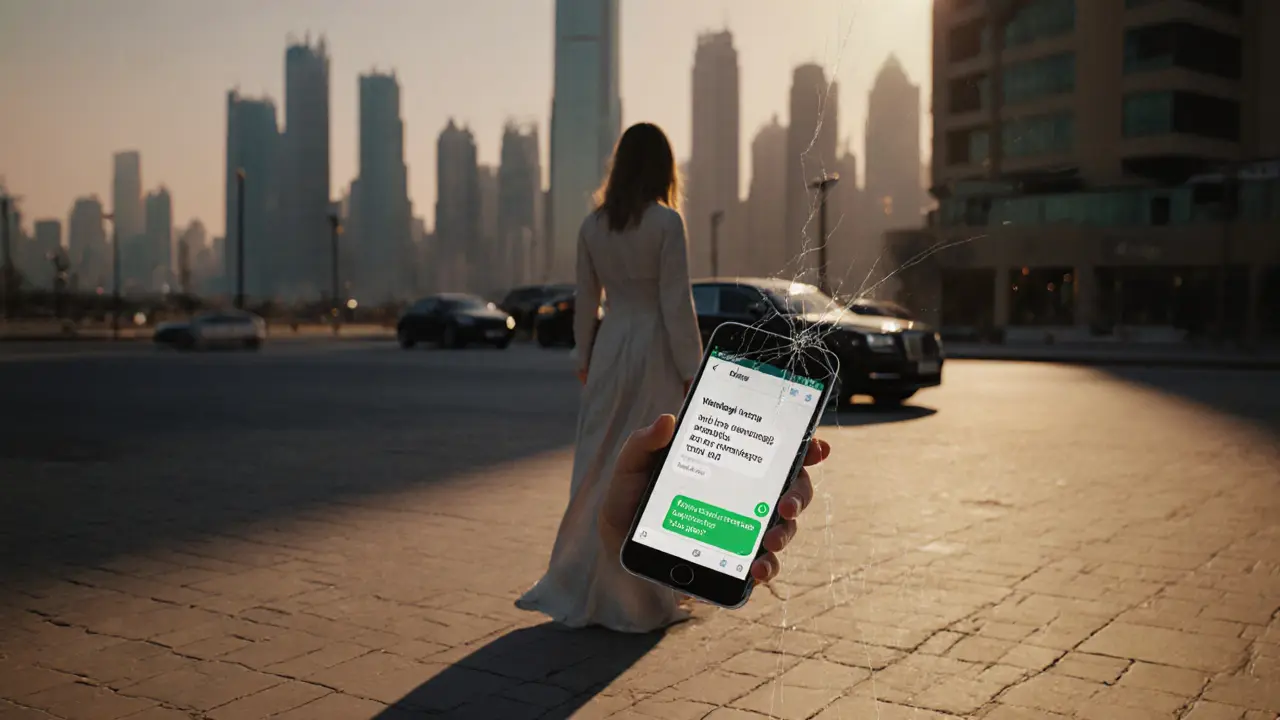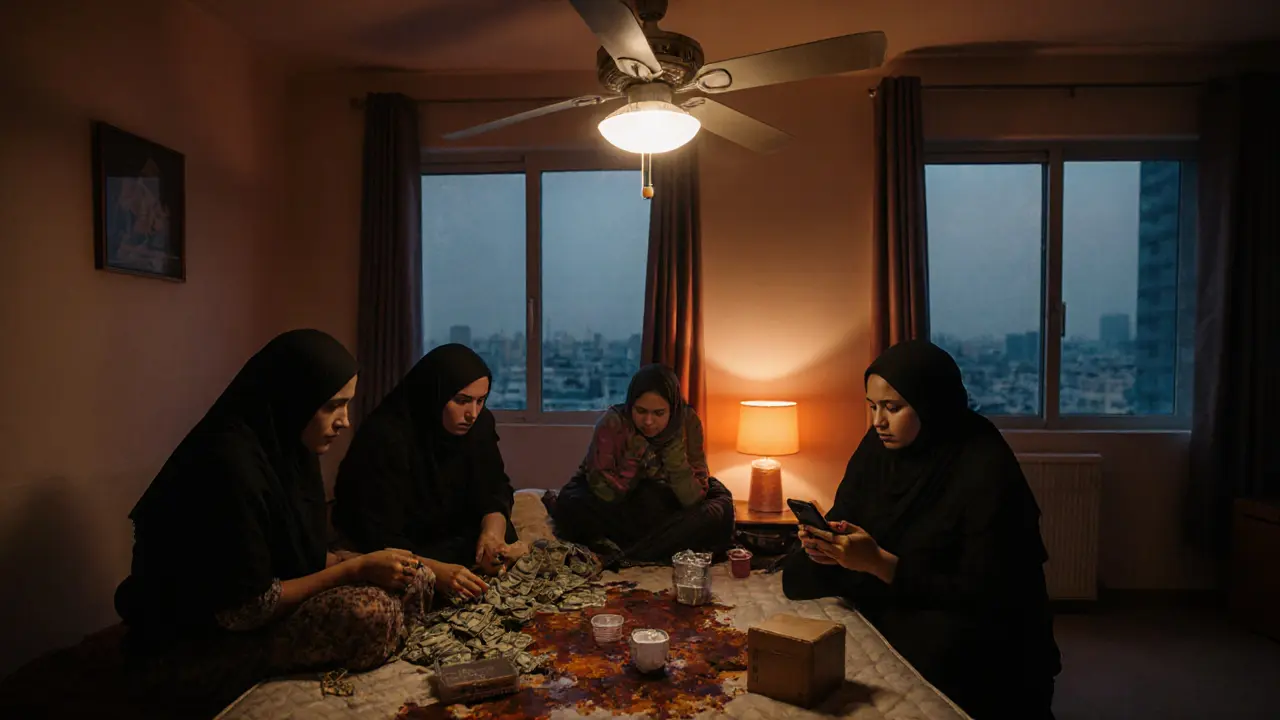- Home
- Adult Entertainment
- How COVID-19 Changed the Lives of Sex Workers in Dubai

How COVID-19 Changed the Lives of Sex Workers in Dubai
Before 2020, Dubai’s underground sex work scene operated in the shadows-but with a rhythm. Clients came and went. Drivers picked up workers at hotels. Payments were cash, discreet, fast. Then the pandemic hit. Borders shut. Hotels emptied. Police raids spiked. And suddenly, the people who kept this invisible economy running-mostly migrant women from South Asia, East Africa, and Eastern Europe-were left with nothing.
What Happened to Sex Workers When Dubai Locked Down?
When Dubai went into lockdown in March 2020, the city didn’t just slow down-it froze. Tourists vanished. Corporate events canceled. Hotels turned into quarantine centers. For sex workers, that meant no clients. No income. No safety net.
Unlike formal workers, these women had no sick pay, no unemployment benefits, no access to government aid. Many lived in shared rooms in areas like Deira or Bur Dubai, paying rent to landlords who didn’t care if they worked or not-only if they paid. When rent came due, some sold their jewelry. Others borrowed from pimps or fellow workers. A few left Dubai altogether, walking across borders into Oman or the UAE’s northern emirates, hoping to find work.
One woman, who asked to be called Amina (not her real name), told a local NGO in 2021: “I hadn’t eaten for three days when my phone rang. A client said he’d pay me 500 dirhams if I came to his apartment. I went. I didn’t have a choice.”
The Rise of Digital Survival
Before COVID, most sex workers in Dubai relied on word-of-mouth, hotel referrals, or drivers who knew the right contacts. The internet was a tool, not a lifeline. After the lockdown, it became everything.
WhatsApp groups exploded. Instagram accounts popped up overnight-often using coded language like “private massage,” “VIP escort,” or “business companion.” Some started using Telegram channels to share “availability” and “rates.” A few even created fake profiles posing as freelance models or virtual assistants to avoid detection.
But digital didn’t mean safer. Scammers targeted desperate workers. Fake clients asked for nude photos upfront. Others recorded encounters and threatened to share them. One worker in Jumeirah lost 3,000 dirhams after sending videos to someone who claimed to be a “marketing agent” looking to promote her services. She never heard from him again.
Police Crackdowns Got Worse
While the world was focused on health, Dubai’s police ramped up vice operations. In 2020 and 2021, over 1,200 people were arrested for “solicitation” or “immoral acts”-a 47% increase from 2019, according to UAE government reports.
Many arrests happened during late-night raids on hotels. Workers were detained, fined between 1,000 and 5,000 dirhams, and often deported. Some were held for weeks without access to lawyers. Others were forced to sign statements admitting guilt under pressure.
What made it worse? The stigma. Families back home didn’t know what happened. Some women didn’t tell their parents they’d been arrested. Others lost their visas entirely, making it impossible to return to work-even after the borders reopened.

Who Got Left Behind?
Not all sex workers in Dubai were the same. The most visible were often women from India, Pakistan, and Bangladesh, working independently or through informal networks. But there were also women from Ukraine, Russia, and Nigeria who worked under the guise of “modeling” or “hostessing” at high-end clubs.
Those with legal visas or connections to foreign embassies had better odds. Some were able to switch to online work-livestreaming, camming, or virtual companionship. Others got help from NGOs like the Migrant Workers’ Rights Association or Dubai Women’s Shelter, which offered food, temporary housing, and legal advice.
But the majority? They had no one. No documents. No savings. No voice.
How the Industry Changed After the Pandemic
When Dubai reopened in late 2021, things didn’t go back to normal. The old system-the drivers, the hotel liaisons, the cash-only deals-had collapsed. Clients became more cautious. Many feared being caught on camera or flagged by hotel security systems.
Now, most transactions happen through encrypted apps. Payments are often digital: Apple Pay, PayPal, or cryptocurrency. Workers demand upfront payment. Some refuse to meet clients unless they’ve been vetted through a trusted network. Others work only during daylight hours, avoiding hotels altogether.
There’s also been a quiet shift in who’s entering the industry. With job losses in hospitality and retail, more women from Sri Lanka, the Philippines, and Egypt are turning to sex work-not because they want to, but because they have no other way to send money home.
What You Won’t Hear in the News
Media reports focus on arrests or “moral decay.” But behind the headlines are real people. Women who used to send $500 a month to their kids in Bangladesh. Women who paid for their sister’s surgery. Women who kept their parents’ home from being repossessed.
They’re not criminals. They’re survivors. And the system didn’t just fail them during the pandemic-it made their survival even harder.

How to Help (If You Want To)
If you’re reading this and wondering what you can do, here’s the truth: you can’t change the law overnight. But you can support the people caught in it.
- Donate to organizations like Migrant Workers’ Rights Association or Emirates Foundation, which offer legal aid and emergency housing.
- Amplify stories from survivors-without exposing them. Share articles written by journalists who protect identities.
- Pressure companies that profit from Dubai’s tourism boom to fund worker protections. Hotels, airlines, and travel agencies made billions during the recovery. Where’s their responsibility?
Change doesn’t come from outrage. It comes from consistent, quiet support.
FAQ: Your Questions About Sex Work in Dubai During COVID-19
Is sex work legal in Dubai?
No. Sex work is illegal in Dubai under UAE federal law. Any exchange of money for sexual services is considered a criminal offense. This includes both the worker and the client. Penalties include fines, imprisonment, and deportation. There are no legal protections or licenses for sex workers.
Did any organizations help sex workers during the pandemic?
Yes, but very few. Groups like the Migrant Workers’ Rights Association and Dubai Women’s Shelter provided emergency food, temporary housing, and legal advice. However, they were underfunded and couldn’t reach most workers. Many women didn’t know these services existed-or feared contacting them because of their immigration status.
How did sex workers adapt after lockdowns ended?
Many shifted to digital platforms using WhatsApp, Telegram, and Instagram. Payments moved from cash to digital wallets. Workers became more selective, demanding upfront payment and avoiding hotels. Some left Dubai entirely. Others returned to low-wage jobs in cleaning or retail, often for less than half what they made before.
Are there more sex workers in Dubai now than before COVID?
It’s hard to say. Official numbers don’t exist. But interviews with NGOs suggest the number of women entering the trade has increased since 2022, especially among those who lost jobs in tourism and retail. Economic hardship, combined with strict visa rules, has pushed more women into survival work.
Can foreign workers get legal help if they’re arrested?
They can, but it’s difficult. Most don’t have access to lawyers unless their embassy steps in. Many are held for weeks without charges. Legal aid is rare. Even if they pay a fine, deportation is often automatic. The system is designed to remove, not protect.
What’s Next for Sex Workers in Dubai?
The pandemic didn’t create the crisis-it exposed it. The system that allowed sex work to exist in silence was always fragile. Now, with inflation rising, rent increasing, and tourism still not back to 2019 levels, the pressure is worse than ever.
Some workers are trying to leave the industry. Others are training in digital skills-graphic design, content writing, social media management-through free online courses. A few have started small businesses: selling homemade food, offering translation services, or running Instagram shops.
But without policy change, without protection, without recognition that these are human beings trying to survive-they’ll keep disappearing into the shadows. And the next crisis? It won’t be a virus. It’ll be silence.

Joel Merriton
I am a professional advisor in the escort industry, providing insights and consultation for premium services. I enjoy sharing my perspective on entertainment trends, especially in vibrant cities like Dubai. My expertise helps clients and readers navigate the unique scene with confidence.
About
Discover escort UAE in our blog! Uncover the UAE’s nightlife, premium companionship, and discreet elegance with unique stories and insights. Start your journey today









